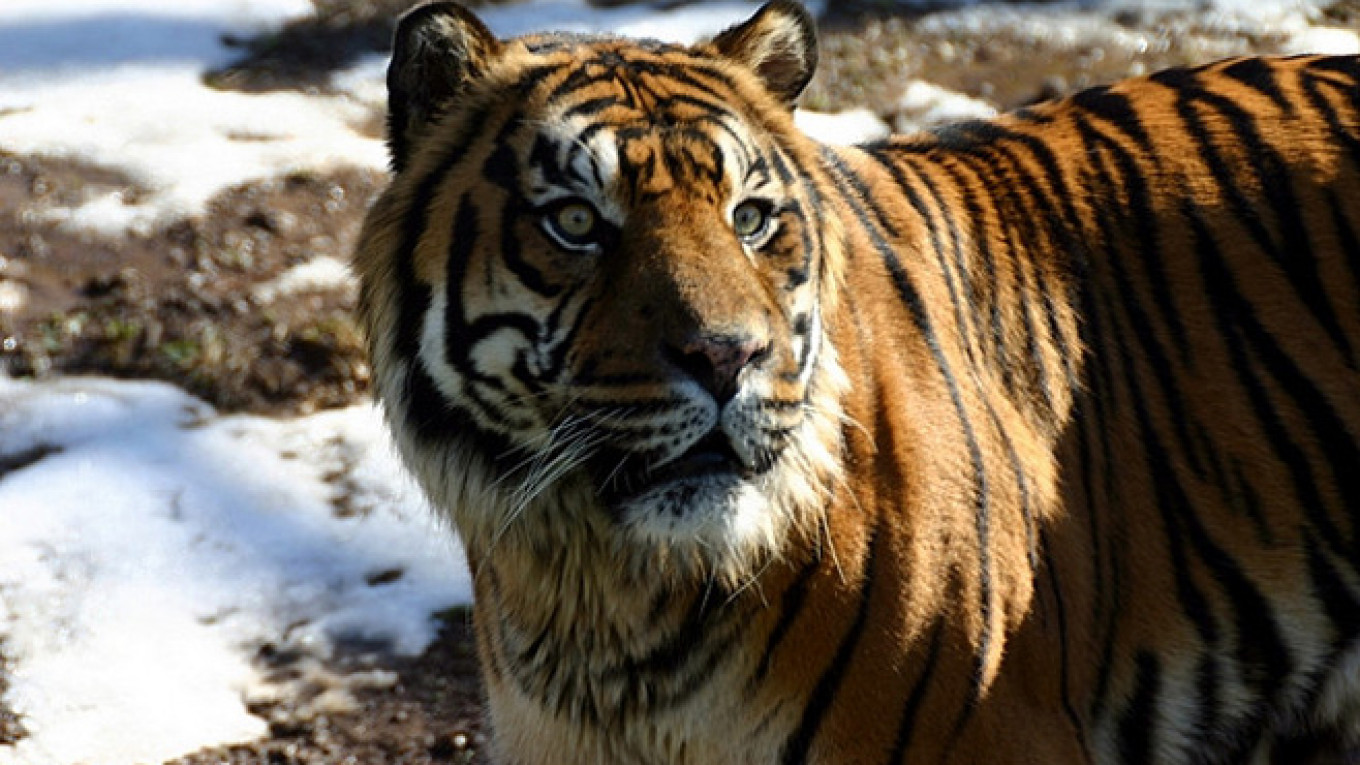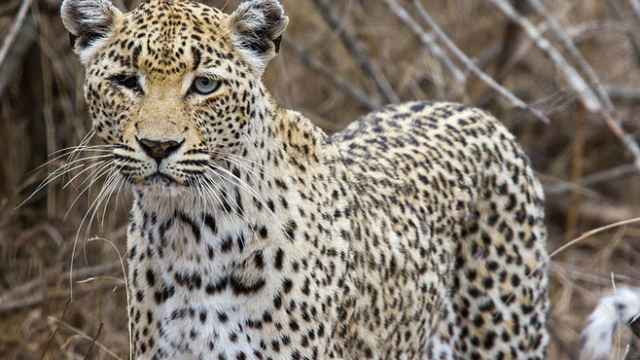The population of endangered Amur tigers living in Russia's Far Eastern Primorye region has remained stable for the past decade, the region's deputy governor said Monday.
"In Primorye today the census of Amur tigers is practically finished, but it is already possible to say that the population of tigers in the region is stable," Sergei Sidorenko said in comments carried by the Interfax news agency.
The preliminary results of the census, which is conducted only once every 10 years, will be available in May, and the final data will be published in October, according to the report. The study is meant to determine the overall condition of the population of endangered Amur tigers, as well as the effectiveness of measures taken to preserve the species.
About 95 percent of the world's Amur tigers reside in Russia's Far Eastern regions of Khabarovsk, Primorye and Amur.
In the 2005 census, between 423 and 502 Amur tigers were estimated to be left in the wild, according to Interfax. The International Fund for Animal Welfare put their estimate much lower at that time, however, saying about 360 were left in the wild. Last fall, the fund warned of the increasing dangers posed by Internet poachers, who post online ads to sell tiger parts.
In order to determine the population of Amur tigers this year, 15,000 kilometers of land was studied using GPS navigation systems and photo traps. A record was also kept detailing the length of the tigers' steps, the width of their heels, and the times and circumstances of their interactions with other animals — information that helps determine the age and sex of the animals, the report said.
The conservation of Russia's Amur tiger population is a pet project of President Vladimir Putin's.
Putin famously visited the Ussuri Nature Reserve in Primorye in 2008, where he made headlines for shooting a tigress with a tranquilizer dart. The Russian Amur Tiger program described the incident in an online statement: "The moment that Putin … and a group of researchers appeared on the trail, the tigress broke free from the trap. Putin took a shot at the animal with the air gun loaded with syringes containing a tranquilizer. The tigress fell asleep a moment later." The Guardian reported in 2012 that the incident had been little more than a PR stunt.
A Message from The Moscow Times:
Dear readers,
We are facing unprecedented challenges. Russia's Prosecutor General's Office has designated The Moscow Times as an "undesirable" organization, criminalizing our work and putting our staff at risk of prosecution. This follows our earlier unjust labeling as a "foreign agent."
These actions are direct attempts to silence independent journalism in Russia. The authorities claim our work "discredits the decisions of the Russian leadership." We see things differently: we strive to provide accurate, unbiased reporting on Russia.
We, the journalists of The Moscow Times, refuse to be silenced. But to continue our work, we need your help.
Your support, no matter how small, makes a world of difference. If you can, please support us monthly starting from just $2. It's quick to set up, and every contribution makes a significant impact.
By supporting The Moscow Times, you're defending open, independent journalism in the face of repression. Thank you for standing with us.
Remind me later.






